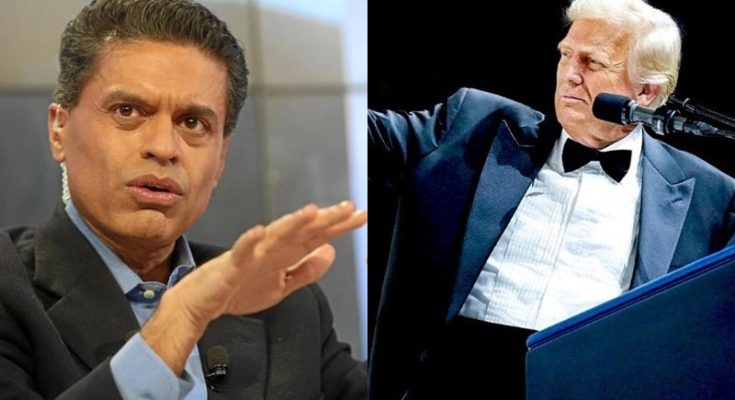#Fareed Zakaria# Donald Trump# 50% tariff# India-US relations# Russian Oil# US foreign policy reversal# crude prices
IBNS-CMEDIA: US President Donald Trump’s 50% tariff on Indian imports is “puzzling” and a “reversal of 25 years of American foreign policy,” political commentator and author Fareed Zakaria has said, warning that the move makes “no sense” and could trigger a global oil shock.
In an interview with News18, Zakaria argued that if India and China stopped purchasing Russian oil, crude prices could spike to $150 a barrel, dealing a blow to global economies.
He described Trump’s decision as an illogical break from a bipartisan strategy, dating back to the Clinton era, that had forged closer ties with India.
“It’s puzzling what Trump is doing. It is a reversal of really 25 years of American foreign policy. If you go back to the Clinton administration after the Cold War, a strategic decision was made that the United States wanted to be closer to India,” the author said.
Zakaria noted that successive US administrations over the past two decades had viewed India as a crucial geopolitical and economic partner in Asia.
“Trump is really reversing 25 years of bipartisan American foreign policy that saw a new strategic alliance with India as in the United States’s vital national interest both geopolitically and geoeconomically,” he added.
The 50% tariff, due to take effect on August 27, is aimed at penalising India for buying Russian oil.
However, Zakaria pointed out that China purchases more Russian oil than India, making the justification “flawed.”
“The excuse for the highly punitive tariffs—the buying of Russian oil—makes no sense because China buys more oil than India does,” he pointed out.
“If India and China didn’t buy Russian oil,” he further said, “oil would be $150 a barrel because you would have taken all that supply off the market, it would cause a recession in the Western world, it would cause a recession in America—and Trump surely doesn’t want to do that.”
He praised the Biden administration’s price-cap strategy, which pushed Russia to sell oil at a discount while maintaining global supply and avoiding a revenue windfall for President Vladimir Putin.
Zakaria also suggested Trump’s move could be driven by personal motives.
“It’s highly personalistic. We’re dealing with somebody, it’s almost like dealing with the dictator of a third-world country where the personal interests, the personal aggravations make a huge difference,” he said.
He cited Trump’s dealings with Brazil as an example of grievance-driven policy.





